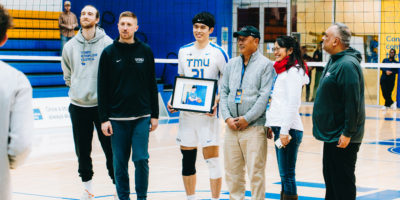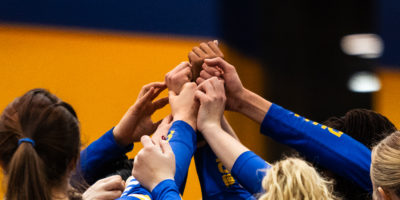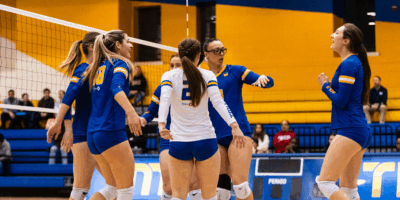By Amy Smart
When buttons and posters are your only costs, the $250 student campaign budget is more than enough in the Ryerson Students’ Union (RSU) elections. But for David Fourney, who may need to hire a sign language interpreter if he runs for vice-president equity, it means discrimination.
“If you want a truly democratic process, you need to make sure that you have a level playing field for everybody,” he said.
Fourney, who is hard of hearing, said the spending limits ignore the needs of candidates who have disability-related costs.
Services like sign language interpreters — typically $100/hour — should be covered by the RSU, he said.
“You need to make sure that everyone feels welcome to participate in the process,” he said.
Fourney brought the issue to chief returning officer (CRO), Pablo Vivanco, who deals with election procedures.
“We take accessibility issues seriously,” Vivanco said.
The RSU is already preparing a ballot for the visually impaired but can only provide sign language interpreters for the all-candidates meeting and debate.
Covering more costs is not feasible, Vivanco said.
“The RSU can only go so far in terms of making the playing field even for everybody and trying to make the elections accessible,” he said, pointing to pre-determined annual budgets. “
There’s really no way that the RSU could pay to have someone sign language interpret for him throughout the entire election campaign.”
In email correspondance between Vivanco and Fourney, the CRO said “reimbursement for election expenses do not include any form of services.” RSU president Jermaine Bagnall said he encouraged Fourney to find volunteers to help him campaign. “This [situation] is something unprecedented,” Bagnall said.
He said spending bylaws can only be reviewed at the annual general meeting on Mar. 31 — after this year’s election. “That’s where people have an opportunity to affect some change on how things run or operate,” he said.
While Fourney said he would prefer to work with the RSU on this, he has not ruled out appealing to provincial human rights law.
According to Ann Whiteside, discrimination and harassment prevention officer, disability-based discrimination is the No. 1 human rights complaint.
“Human rights law has primacy over all other legislation,” Whiteside said, who has listened to Fourney’s concerns. “As I knew before I even started this process, there is a sledgehammer,” Fourney said.
“It’s not a sledgehammer I want to use, but there is one… it doesn’t matter if your bylaws say one thing; human rights laws in Ontario can trump them.”
Nominations for all positions close Jan. 22 at noon.











Leave a Reply